“Skincare For Allergic Contact Dermatitis - Sensitive Skin Beauty - Women's Health” plus 1 more |
| Skincare For Allergic Contact Dermatitis - Sensitive Skin Beauty - Women's Health Posted: 13 Sep 2020 05:31 AM PDT If you've ever had to get a bit creative and repurpose one of your go-to beauty or skincare products (say, because you ran out, or because your suitcase got lost, or because you refuse to use your boyfriend's questionable-looking bar soap), you'll relate to me using Living Proof No Frizz Conditioner as a hair product, body wash, and shaving cream all-in-one this past summer. I wish I could say this skincare ingenuity was because I simply love Living Proof so much that I wanted to literally bathe in it. Unfortunately, it was more of an act of despair after an allergy patch test revealed that I have allergies and sensitivities to nearly two dozen ingredients commonly found in most beauty and skincare products on the market. I had no choice but to ditch just about every product in my arsenal — leaving me with little more than my favorite conditioner, which quickly became my holy grail product for a few bleak weeks. Over the past few years, I'd begun noticing some mysterious all-over body itching, particularly after having my hair and nails done. I didn't immediately connect the dots that it was an allergy because online searches told me that I'd have localized blistering and peeling skin at the site if that were the case, and my scalp and nails were mostly fine. But over time, the itching became worse and worse, hitting a fever pitch after my first post-quarantine balayage appointment in June. My entire body felt itchy, leaving me no choice but to take an antihistamine before bed most nights just to feel some relief. After finally snagging an appointment with an allergist, I was hit with the news that would make beauty lovers weep: I'd developed contact allergies to a slew of common substances. This includes formaldehyde, coconut derivatives, lavender oil, tea tree oil, and a host of other things with super long science-y names that I'd never even heard of, but that you'll find in an ingredients list on the back of many products at the drugstore. My official diagnosis? Allergic contact dermatitis, a type of eczema in which you develop an allergy to something that makes contact with your skin. I've always counted myself among the 60–70% of women who have sensitive skin, but that term means different things for different people — some are sensitive to fragrances, others have skin that is frequently dry or irritated. For me, it showed up in a myriad of ways: Cheap earrings from Claire's as a trendy tween would have my ears oozing, bleeding, and peeling (which I now attribute to an allergy to nickel and gold), exposing my skin to the sun even with sunscreen on would lead to blistering, or itching after using a "free and gentle" fabric softener...you get the gist. Here's what else I learned: There are two types of contact dermatitis and they're both very common.Classified as either irritant or allergic, contact dermatitis is a skin reaction "triggered by something that has been in contact with your skin such as a chemical, cosmetic, or metal," explained Dr. Purvi Parikh, MD, an allergist and infectious disease doctor with Allergy & Asthma Network. "People will develop red, itchy, flaky rashes that can even blister in the most severe cases. The skin can swell up locally, ooze, or crack," says Kathleen Dass, MD, an immunologist at the Michigan Allergy, Asthma & Immunology Center. Dr. Parikh noted that it can be difficult to pinpoint exactly what's causing the issue, and here's why: "With allergic contact dermatitis, the reaction is delayed and localized to where the product is, but it may not necessarily be something that you applied directly to that area," said Dr. Dass. "For instance, with eyelid contact dermatitis, it may not be a moisturizer or product you are applying directly to your eyelid. A very common cause is nail polish applied to your hands that you then use to touch your face." Even trickier is that it can take repeated exposure to develop the allergy.Unlike irritant contact dermatitis, which shows up almost immediately, allergic contact dermatitis can take days or even years to reveal itself. "You can develop a reaction to products or ingredients at any time," said Dr. Dass. "The more you are exposed to the product, the more likely you are to develop a reaction. Your job may also put you at increased risk due to repeated exposures, such as healthcare workers, hairdressers, beauticians, and machinists," who are more often exposed to common allergy-prone irritants and chemicals. Basically, "your immune system needs to be exposed to something repeatedly and then it decides whether to tolerate it or become allergic to it," says Dr. Parikh. If you think you have a contact allergy, call your doctor."The most important first step is to identify the ingredient causing the allergic reaction," explains Dr. Dass. "An allergist or dermatologist will apply patch tests to your back — these patches have small chambers that contain common allergens. An allergist can also apply a specific product you are suspicious of. After 48 hours, the patches will be removed. Your physician may even ask for you to return in 72 or 96 hours for a second and/or third reading." Because these reactions are delayed, your doc will need to examine the patches after several days, possibly requiring more than one return office visit. "Once you identify the ingredient, you should immediately discontinue and avoid products containing this product," said Dr. Dass. "Your allergist may recommend specific topical and/or oral corticosteroids, barrier creams, or moisturizing lotions to help your skin feel better. If your skin has become infected, you may even require an antibiotic." My derm created a profile for me on SkinSafe, an app that helps you identify and examine labels to find safe-for-you products. This content is imported from Instagram. You may be able to find the same content in another format, or you may be able to find more information, at their web site. While a visit to your derm is a great first step, an allergy specialist can "pinpoint the exact ingredient that is causing the contact dermatitis," said Dr. Dass, adding, "I would also strongly recommend seeing a specialist or expert if your rash hasn't resolved with discontinuing of products or if your skin is blistering or peeling." When it comes to finding products for sensitive skin, you can't always trust labels.Having the patch test done was the easy part. I felt relieved to know what was causing the problem, but that was just the start of my contact allergy journey. Eliminating just about everything in my routine meant that I'd need to find new products (sans irritants) that are safe for me. Peruse the aisles of any beauty supply store or drugstore and you'll find dozens (if not more!) products making all kinds of claims: "organic, "clean," "allergy-friendly/hypoallergenic," "natural," "gentle," or "for sensitive skin," are all big beauty buzzwords these days. But there are zero federal regulations on any of these terms, which makes checking the ingredients crucial if you are, in fact, dealing with a skin condition like eczema or contact allergies. "Per the Food and Drug Administration (FDA), there are no federal standards that regulate products identified as hypoallergenic," said Dr. Dass. "This means that companies can label their product as 'natural,' 'hypoallergenic,' 'organic,' or 'safe for sensitive skin' arbitrarily. Each company has its own definition." Both docs recommend avoiding products with dyes and fragrances as a good starting point, as these can cause irritation even in those without a confirmed allergy. And it's not just cosmetics that can cause a flare-up: home and cleaning products, jewelry, and even candles can aggravate skin allergies. It's taken weeks to whittle down my routine.I replaced my beloved products with those that won't trigger a response. Not only was I able to give once-loved products to family members, donating the rest to my local women's shelter, but this gave me the opportunity to find new favorites. I've aimed to support small businesses — including BIPOC and/or LGBTQ-owned operations — whose products rely less on chemicals and preservatives than more mainstream brands out there. I still have to comb every ingredient list with a magnifying glass, but some options that are safe for me include SheaMoisture Raw Shea Butter Moisture Retention Shampoo, Bela Pure Natural Goats Milk Soap, CeraVe Hydrating Facial Cleanser, Living Proof Perfect hair Day (PhD) Dry Shampoo, and yes, my beloved Living Proof No Frizz Conditioner. I also love cleaning and detergent products by Charlie's Soap, and hand soaps by Bath Geek, both companies that specialize in allergy-safe home and cleaning products. Thankfully, self-quarantine has made it so that I don't have to worry much about makeup, perfume, or beauty treatments these days. If you're noticing any sensitivity or skin irritation and aren't sure what it might be, I can't recommend visiting an allergy specialist enough. It might mean a long road to figuring out a new routine, but it will be so worth it when you're no longer shaving your legs with conditioner or relying on antihistamines for a good snooze. This content is created and maintained by a third party, and imported onto this page to help users provide their email addresses. You may be able to find more information about this and similar content at piano.io |
| These Are the Only Earrings to Wear If You Have Sensitive Ears - Yahoo Lifestyle Posted: 21 Jul 2020 12:00 AM PDT  If you have sensitive ears, you know that finding a pair of earrings that are cute and that you can wear all day long is an uphill battle. Though those trendy Zara earrings all of your friends are rocking at the moment will just never be for you (because green skin and sore ears just isn't worth it, no matter how gorge they are), we've put in the research to track down pairs you'll be able to wear all season—and all year—long. The key here is to carefully read up on what that pair of hoops you are lusting after is made of before you pull the trigger. The most common irritator for sensitive ears is nickel, which is unfortunately used to make most of the affordable earrings out on the market (and is often used to make piercing guns—which is just one more reason why it's worth going to an experienced piercer next time you want to up your ear game). So if you're planning to pick a pair up from a high street store, you'll likely want to steer clear unless the packaging specifies a pair is nickel-free or is made of one of the five metals outlined below. The following 16 pairs made of pure gold, sterling sliver, and more should all be safe for sensitive ears, so read on to shop earrings you'll be able to mix and match to Instagrammable perfection. GoldIf you have sensitive ears, going for a pair made out of solid 14k gold or higher is one of the safest routes you can take, as very few people are allergic or sensitive to the neutral metal. Many styles are clearly marked as solid gold—as opposed to gold plated, which can mean there is only a thin layer of gold over pesky nickel or brass, both of which will likely irritate your ears—so you can be sure what you are clasping on won't cause you any trouble. That said, if solid gold is out of your price range, you can go for gold-plated earrings with a sterling silver or titanium base (more on both of those materials in a minute) without causing yourself any trouble.  Bony Levy Single Initial Stud Earring ($95)  BaubleBar Sirena 18K Gold Plated Huggie Hoops ($58)  Zoë Chicco Graduated Diamond Curved Stud Earring ($210)  Stone and Strand Gold Topaz Ear Cuff ($125)  Bony Levy Essentials 14K Gold Smooth Hoop Earrings ($195) Sterling SilverLike gold, sterling silver is typically a safe bet if you have sensitive ears. That said, because the material is a composition of other metals (as pure silver is usually too soft for earring posts), be sure to look for a 925 stamp, which ensures the silver is 92.5% pure and will therefore be less likely to irritate your skin.  Tom Wood Medium Ice Hoop Earrings ($210)  David Yurman Cable Classics Hoop Earrings ($350)  Lafonn 7 Symbols of Joy Earrings ($115)  Monica Vinader Nura Small Pebble Stud Earrings ($135)  John Hardy Bamboo Silver Hoop Earrings ($175) PlatinumThough usually much harder to find (and much more expensive!) than gold and silver, platinum styles are some of the best earrings for sensitive years. The rare metal is also remarkably resistant to corrosion, so the investment more than pays off if you are looking for a pair that you plan to wear 24/7.  Tiffany Soleste Earrings ($2400)  Etsy Art Deco Platinum Top Diamond Pearl Earrings ($625)  Nordstrom 1ct TW Cubic Zirconia Earrings ($42)  Orianne Platinum Earrings ($4000) TitaniumTitanium is often used in piercing jewelry, as it is every bit as strong as surgical steel and is reliably hypoallergenic. Like platinum, titanium earrings can hold up to everyday wear and are a good option if you are looking to build out your collection, but don't want to splash out on fine jewelry.  Ouefer Titanium Daith Earring ($19)  Bauble Bar Daniya Resin Hoop Earrings ($36)  Cinlan Titanium Steel Hoop Earrings ($9)  Cecile Stewart Jewelry Hypoallergenic Titanium Earrings ($20)  NewkeepsR Titanium Cluster Gem Stud ($17) Nickel-FreeThough it is always best to know exactly what kind of metal your earrings are made of, unless you are severely sensitive, pairs marked simply as nickel-free should be safe for you to wear. That said, we'd suggest going this route only for trend-led styles or pairs you don't plan to leave in for the long haul.  Stella + Ruby Statement Crystal Earrings ($40)  Pavoi Gold Plated Cubic Zirconia Cuff Earrings Huggie Stud ($14)  BaubleBar Fareena Resin Drop Earrings ($36)  Kenneth Jay Lane Polished Gold Link Hoop Earrings ($42) This post was published at an earlier date and has since been updated. Up next, this is my favorite place to buy under-$50 jewelry that looks expensive. This article originally appeared on Who What Wear Read More from Who What Wear |
| You are subscribed to email updates from "earrings for sensitive ears" - Google News. To stop receiving these emails, you may unsubscribe now. | Email delivery powered by Google |
| Google, 1600 Amphitheatre Parkway, Mountain View, CA 94043, United States | |


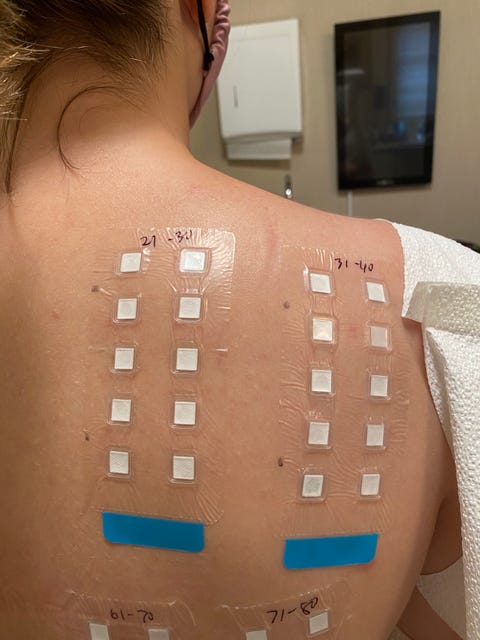


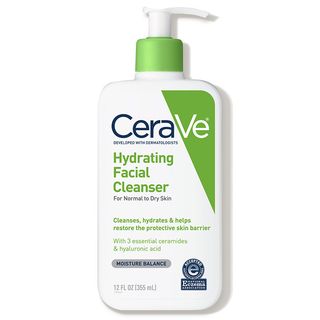
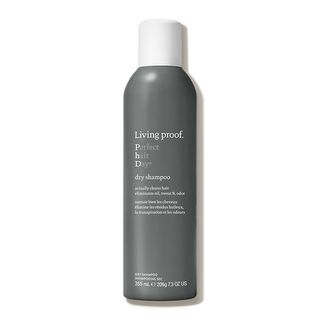
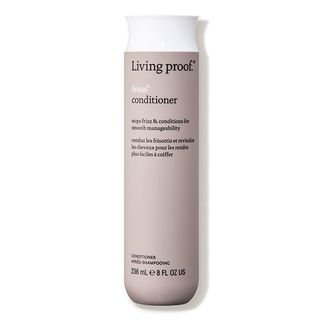

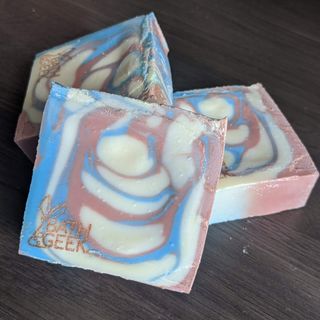


0 Yorumlar